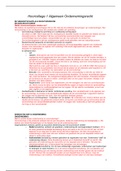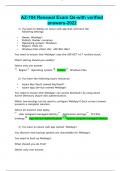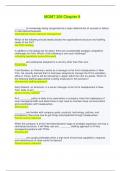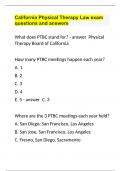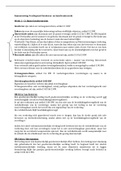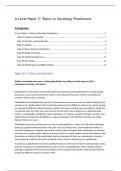Exam (elaborations)
MQ Exam 2024 Notes QUESTIONS AND ANSWERS for PDU3701
- Institution
- University Of South Africa (Unisa)
IMPORTANT NOTICE UNDER NO CIRCUMSTANCE DO I CLAIM THIS AS THE MEMO FOR THE EXAM. THESE EXAM NOTES ARE USED TO STUDY THE CONTENT OF THE ENTIRE ONLINE TEXTBOOK FOR THE PDU3701 PHILOSOPHY OF EDUCATION COURSE. THIS FILE INCLUDES A SHORT SUMMARY OF EACH CHAPTER AND A MULTIPLE-CHOICE TEST (MQ TE...
[Show more]





